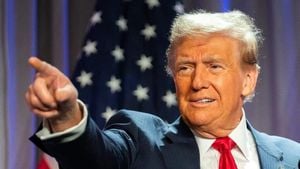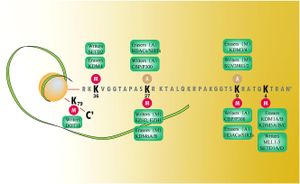Elon Musk, the billionaire entrepreneur and newly appointed minister of government efficiency, has ignited controversy following his appearance at Donald Trump’s inaugural rally held at the Capital One Arena on January 20, 2025. During the event, Musk performed gestures during his speech which some attendees and commentators have likened to Nazi salutes.
The sequence unfolded as Musk thanked the gathered supporters for facilitating Trump’s return to the White House. He first tapped his left chest with his right hand, then raised his right arm, palm open. He repeated this movement, encouraging the crowd behind him to join the display of enthusiasm.
Shortly after this incident, critics began to circulate footage of Musk’s performance, leading to widespread backlash on social media. The gesture, seen by many as reminiscent of the Nazi ‘Sieg Heil’ salute, prompted immediate condemnation from various political figures and historians.
“Well, it didn’t take long,” tweeted Jimmy Gomez, a Democratic congressman, reflecting the sentiments of those who viewed the gesture as troubling and deliberate. Likewise, former congresswoman Cori Bush expressed her surprise, insinuated Musk had practiced the gesture, hinting at its inappropriate nature.
Historians have weighed in on the actions of Musk, creating a divide between those who view it as explicit Nazi symbolism and others who defend it as merely awkward. Claire Aubin, a historian specializing in Nazi studies, stated unequivocally, “I believe you are all right,” confirming the gesture’s Nazi connotations. Similarly, Ruth Ben-Ghiat, another expert, described it as aggressive and aligned with fascist gestures.
Conversely, not all historians agree on the interpretation. Aaron Astor defended Musk, stating, “This gesture should not be categorized as Nazi. It is merely the socially awkward signal of someone who may be autistic expressing goodwill to the crowd.” Astor referenced Musk’s previous acknowledgment of having Asperger’s syndrome, which adds complexity to the interpretation of his actions.
Elon Musk himself responded to the controversy on his platform, X, denying accusations of propagandizing Nazi imagery. He criticized the motivations behind the backlash, stating, “Honestly, the ‘everyone is Hitler’ attack is so tired. They need to come up with something fresher.” His call to dismiss the criticisms as tired may reflect his frustrations with the media narrative surrounding his actions.
The controversy extends beyond Twitter, with broader discussions on the appropriateness of using historical Nazi imagery and rhetoric within contemporary political discourse. Many have pointed to Musk’s recent affiliations and support for extreme right-wing politics across Europe, including Italy's Giorgia Meloni and Germany's AfD party, as indicative of his political leaning, adding fuel to the debate surrounding his actions at the rally.
Further complicity arises from the response of organizations such as the Anti-Defamation League (ADL), which defended Musk’s actions as ‘awkward gestures’ rather than pointing to Nazi symbolism. Yet this defense also drew ire, especially from left-leaning political figures like Alexandria Ocasio-Cortez, who criticized the ADL's stance as untrustworthy.
Ocasio-Cortez's comments reflected the frustration emanated from various quarters of the political spectrum, indicating not only deep discontent over Musk's actions but also broad concern about what the gesture signifies within the larger framework of American politics and social responsibility.
This incident has sparked much debate, igniting concerns about the normalization of extremist imagery and rhetoric. Musk's position, coupled with his provocative history and recent political alliances, raises questions about accountability and the impact of such public gestures by influential figures.
With drastically differing opinions over the incident, the discussion is now as much about interpretation as it is about intent. Observers are left to navigate the murky waters between actual endorsement of extremist ideologies and mere social awkwardness, which can often reflect poorly on faces of modern leadership.
The future engagement of Musk with politics and his social media influence will surely be magnified under this lens, prompting both supporters and critics to monitor his activities closely.



